Malaria is a protozoan disease caused by Plasmodium species and is transmitted by the female Anopheles mosquito1. It is common during the monsoon season due to a rise in mosquito breeding. The disease can lead to systemic symptoms and metabolic stress, which can suppress immunity and increase nutritional needs.
Malaria typically presents with symptoms such as cyclical fever with chills, headache, muscle aches, vomiting, and fatigue1. The Anopheles mosquito transmits the Plasmodium parasite through its bite, introducing the parasite into the bloodstream of a healthy individual. To treat malaria, there is no specific diet, but one needs to ensure good supportive nutritional care to help the body fight the disease. A diet for malaria should focus on boosting the immune system without causing harm to other organs like the kidney, liver or digestive system. In this blog, we will discuss what you should eat and what to avoid during malaria, to help manage symptoms better and reduce risk of complications.
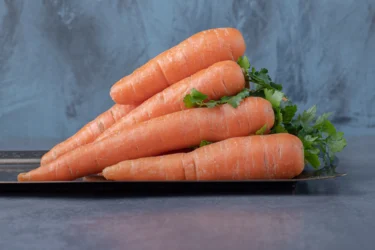
When the patient has malaria, the body’s metabolic rate increases due to fever. This means that the body’s nutritional requirements increase and also the need to intake calories.
A high-carbohydrate diet can be good. Grains are a rich source but prefer rice over wheat and millets. Rice can be digested easily and can release energy faster. Fresh fruits and vegetables can also be great for malaria patients. According to studies3, vitamin A2 and vitamin C rich fruits and vegetables like beetroot, carrot, papaya, sweet lime, grapes, berries, lemon, orange, along with zinc, can help to boost the immunity, lower some symptoms and reduce risk of complications in patients suffering from malaria.
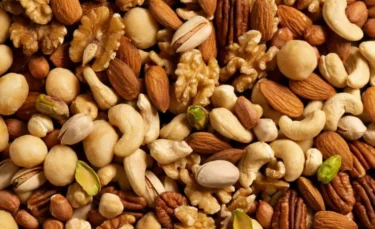
When you have malaria, you need to incorporate more phytonutrients into your diet that help to tackle antioxidative stress caused by an infection4. Nuts and seeds provide essential fatty acids, antioxidants, and protein. These nutrients help reduce oxidative stress and support healing. Choose unsalted, plain varieties and avoid commercially processed snacks.
I would like to share a helpful tip for dealing with malaria. Red palm oil contains antioxidants that might protect your body’s cells. It may reduce tissue damage and manage oxidative stress caused by malaria and other factors8. Always remember to consume it in moderation and consult with a healthcare professional for comprehensive malaria management.
Dr. Siddharth Gupta, B.A.M.S, M.D (Ayu)
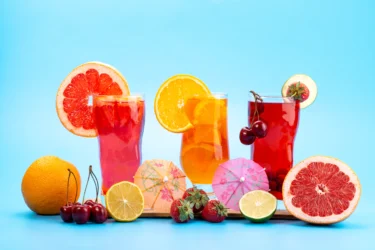
Adequate hydration is essential to compensate for fluid loss due to vomiting and dehydration5. Oral rehydration solutions, fresh fruit juices, coconut water, and soups can be included. All water consumed should be boiled or filtered. Herbal remedies like ajwain water may help with bloating6, but should be used cautiously and not replace medical treatment.
While drinking water, make sure it is boiled or sterilized. Doctors usually recommend a daily fluid intake of at least 3 to 3.5 litres, if not more. Fluids will help in washing out the toxins from the body via urine and stools and help you get well sooner.
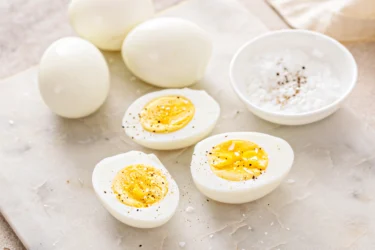
Protein is essential for tissue repair and immune function. Include well-cooked pulses, eggs, chicken, and dairy in your diet. If gastrointestinal symptoms are present, start with soups and broths. Some traditional foods like curd, lassi, and buttermilk is highly beneficial, but your doctor can guide you best on this.
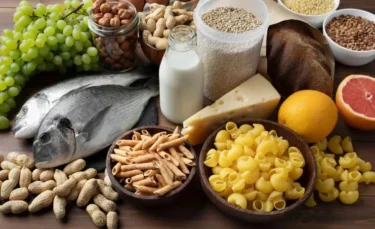
Limit fried or greasy foods, as they can worsen nausea or diarrhoea. Small amounts of healthy fats such as omega-3s from flaxseed, fish or walnuts are beneficial. They work well in reducing inflammation in the body7. Avoid trans fats and excessive dairy cream.
According to my knowledge, the seeds of the fever nut plant might be a helpful remedy for malaria10. They possess special properties that may help fight against the malaria-causing parasites. Additionally, these seeds also have anti-inflammatory effects!
Dr. Smita Barode, B.A.M.S, M.S.
Avoid very high-fiber foods like green leafy vegetables, fruits with thick skin, and whole grain cereals, which may cause bloating or are hard to digest during acute illness. Refrain from high-fat, fried, or processed foods (e.g., chips, pastries, fast food). Also, refrain from having food that is spicy or acidic, like pickles and sauces. These can cause stomach problems and heartburn. Avoid intake of coffee, tea, cocoa, cola, or any other caffeinated beverages.
It is important to work on vitamin loss by drinking electrolytes5. Eating soups, stews, or drinking fruit juices or dal water, coconut water, etc., is important. Vitamin C and A-rich foods such as papaya, beetroots, and other citrus foods, etc. with vitamin B complex are important for a malaria patient.
I believe that it’s crucial to take precautions against mosquito bites to protect yourself from malaria. Applying mosquito repellent to exposed skin might be very helpful. Additionally, using mosquito nets over beds is highly recommended, especially while sleeping9. By following these simple steps, you may significantly lower your risk of contracting malaria.
Dr. Rajeev Singh, BAMS
Malaria, a parasite infection caused by mosquito bites, can adversely affect your immune system. Following the right diet during malaria can help in dealing with symptoms and avoiding risk of complications. This comprehensive list of foods to eat and avoid can help you meet the body’s unique demands during this infection. But remember, while nutritional care is essential, medical therapy must be followed as recommended by doctor. Moreover, prevention of mosquito bites through repellents, nets, and protective clothing remains the cornerstone of malaria control.
Also Read: Food for Dengue – What To Eat And What To Avoid!
Disclaimer: The information provided here is for educational/awareness purposes only and is not intended to be a substitute for medical treatment by a healthcare professional and should not be relied upon to diagnose or treat any medical condition. The reader should consult a registered medical practitioner to determine the appropriateness of the information and before consuming any medication. PharmEasy does not provide any guarantee or warranty (express or implied) regarding the accuracy, adequacy, completeness, legality, reliability or usefulness of the information; and disclaims any liability arising thereof.